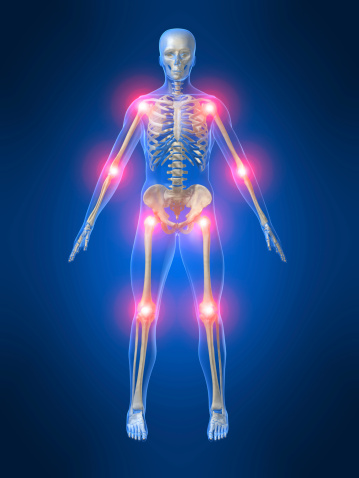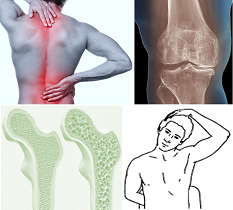
A doctor can diagnose joint muscle pains by examining the affected joint and the surrounding tissue to make sure that nothing else is wrong. The doctor may also perform an X-ray to rule out other disorders or see if there is any fluid in the joint. Blood tests may also be ordered to confirm the diagnosis and rule out other conditions. A doctor can prescribe a medication to treat joint muscle aches. In the meantime, a patient suffering from joint pains should see a physician immediately.
The first step is to seek medical help for joint pain. Anti-inflammatory drugs such as acetaminophen may help relieve pain caused by arthritis. Stronger doses of these medications may require a prescription. Over-the-counter products and topical creams may help relieve pain, while some doctors may recommend medications and surgery to relieve symptoms. Patients should discuss any treatment options with their doctor before undergoing any procedure.
X-rays are necessary to identify the source of pain. The doctor may perform a physical examination as well as a detailed history and physical examination. If the pain is caused by an underlying disease, joint x-ray will be required. Other blood tests may be ordered, including a sedimentation rate test, which measures the amount of inflammation in the body. If symptoms persist, your doctor may prescribe local pain relievers and anti-inflammatory medications.
Nonsteroidal anti-inflammatory drugs (NSAIDs) may be prescribed. These medications relieve pain within a few hours. These medications are often sold without a prescription. Capsules Artralon
can be used long-term to treat joint pain. However, they are less effective in treating chronic pain. In some cases, your doctor may suggest surgery to relieve symptoms. You should always see a doctor to determine the cause of your joint pain.

Often joint pain can signal an underlying problem that requires medical attention. An MRI will identify the underlying cause of joint pain and determine the best course of treatment. In addition to a physical examination, your doctor will evaluate your symptoms and prescribe medications based on your unique circumstances. It is important to identify the source of the pain and seek medical help if it is accompanied by other symptoms. A thorough examination will help you find the right solution for your pain.
Other common causes of joint pain include overuse, arthritis and gout. These conditions can affect the hip, knee, shoulder, elbow, and elbow. Some people may experience short-term pain that goes away on its own, but it can also affect your quality of life. In any case, you should contact your doctor immediately for treatment and advice. You should not be ashamed of your pain and seek medical help if you feel it is a symptom of a serious health problem.
While there are many other causes of joint muscle pains, the most common one is aging. As you age, your body’s joints begin to wear down, causing your joints to experience pain and fluid. You should consult your doctor if your joint pains are becoming more severe. The right treatment will depend on the type and cause of the pain and the cause. It may be necessary to undergo surgery to relieve your symptoms. This will help you avoid any further complications and ensure that your condition improves over time.
In addition to a proper diagnosis, your doctor will perform a physical examination and ask a series of questions related to joint pain. A doctor may also order blood tests to screen for autoimmune disorders or other conditions. If the pain is acute, a doctor may prescribe topical medications and non-steroidal anti-inflammatory drugs (NSAIDs) to reduce swelling and relieve joint pain. Your primary care physician may also refer you for a surgical procedure.
Painkillers, such as acetaminophen, can help you manage your symptoms. They can also relieve joint pain by relaxing your muscles. NSAIDs are non-steroidal anti-inflammatory drugs (NSAIDs) and are available over-the-counter. In addition to over-the-counter medications, you may also want to consult your doctor if you are experiencing long-term, severe pain in your joints. If the pain is due to a weakened or damaged joint, a NSAID might be beneficial.